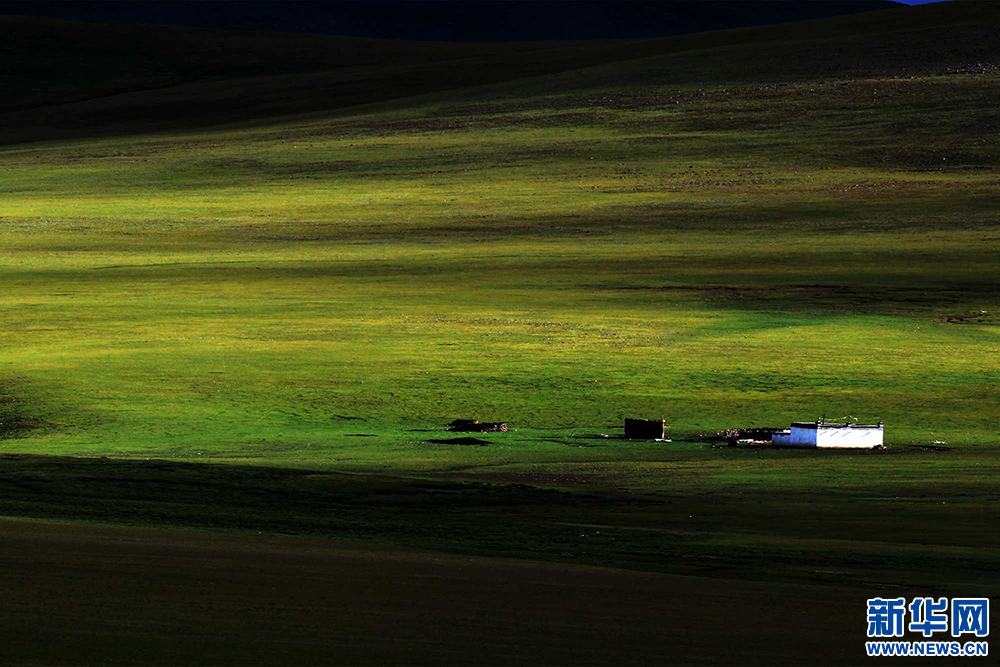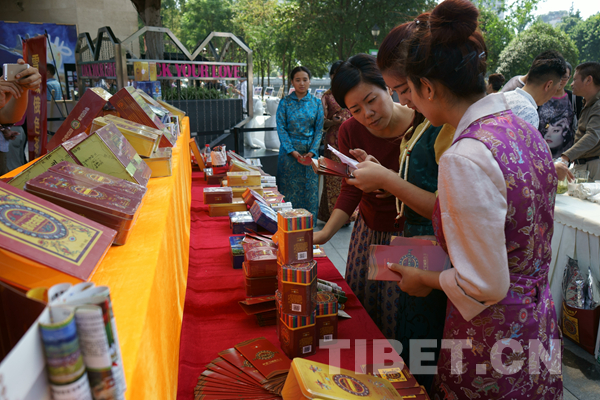From wado to Ese Tea (III): highland tea popular on the streets of Chengdu
Editor's note: The Sichuan-Tibet Plateau, a beautiful region that reaches toward the heavens, is a place showered with blue skies, covered in white clouds, and dotted with snow-covered mountains, but recently, something truly remarkable has been materializing among the households that call this place home. A groundbreaking historic change has been reshaping the land and its people. From today on, we will publish a series of stories to tell you those changes.
Like Droma, over 2,000 Tibetan households pick tea leaves around Luhuo County, and the Jinjiang support team has helped the people there industrialize Ese Tea and promotes its sale on popular city streets, with the profit going toward improving the livelihoods of poor ethnic Tibetans living in the area.
"Supporting Tibetan-inhabited areas means showing them how to take advantage of what they have and use it to help locals build functional industries that will lead to long-term sustainability," says the Jinjiang team leader. "We come from the popular Chunxi Street and would, of course, love to sell Ese Tea there. With just the right packaging and presentation, we can try to get the public's attention and promote what the locals here have to offer!"
After the Jinjiang support team brought in its second wave of members, over ten enterprises conducted on-site investigations across Luhuo, and in the end, a state-owned company, which has an office in one of Chengdu's popular areas, decided to cooperate with the county tea factory to form a local tea company and manage sales on Chunxi Street. "During our experimental phase, three shops sold 120 thousand in valued packages within one month, which is much more than we ever expected," says Lei Min, director of Ese Tea, which was not only sold in popular streets but also via its e-business platform, with the two channels rendering the product a remarkable success.
Today, the people gathering tea leaves are no longer just from Luhuo County. People from Tardo, Dawu, and Litang have also started to come and see what the buzz is about, and wherever a tea tree can be found, there is sure to be someone picking nearby. "We will do our best to make Ese Tea as famous as tertiary-buckwheat tea!" is the general attitude of the support team, with members enthusiastic in their planning and eager to start up new initiatives in tea production. Wado leaves and stems have a high potential for development. Stalks are already being produced as tea blocks, and its fruit may even be distilled into a sort of wine. "Ese Tea will most certainly make life better for people living on the plateau!"
The Chinese version of this story is written by Zhong Xianni and translated into English by Huang Wenjuan. And the story is sourced from the United Front Work Deparment of the Communist Party of China (CPC)Sichuan Provincial Committee.
Editor: Ana Wu
Your Comment
Name E-mailRelated News
-
;
-
-

-
From wado to Ese Tea (II): more tea leaves, more money in the bank
Luhuo County is 3,250 meters (10,663 feet) above sea level. With its charming landscape and rich natural attractions, something new is bringing more people to the area: Ese Tea.
-
-
-
-
A tapestry of achievement: from wado to Ese Tea (I)
Today, with the Jinjiang District support team lending a helping hand in the area, the wado is being grown to make "Ese Snowland Tea", which is now sold on the streets of Chengdu and has over 500 shops offering it to customers.
-
Based in Lhasa, Tibet Vista is a Tibet travel agency that specialized in Tibet permit, and Tibet tours for both private and group travelers at a local price!
•4 Days Lhasa City Group Tour from USD 460 •8 Days Everest Base Camp Group Tour from USD 850 •15 Days Mt.Kailash Group Tour from USD 1780 •2016 Tibet Train Tours from Beijing, Shanghai, Chengdu, Xining,etc











